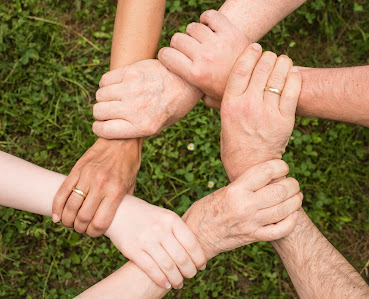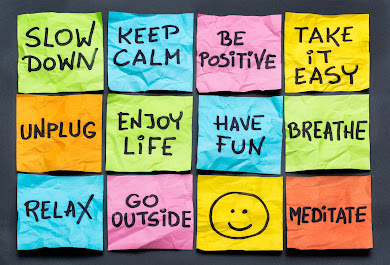Weight control 🌵and Lifestyle Medicine 🌿-Part 5 Sleep 😴
Sleep💤, oh beautiful sleep. When it is good sleep, we feel regenerated and restored to better functioning. How we crave sleep when it is insufficient. Don’t you often find keeping up with commitments can make you give up sleep time so you can get more done? On a global population scale, our sleep is not only insufficient in time, but lower quality than required. There are so many reasons for this. It may be young children or dependent parents or deadlines for work, we could add endless other examples. But one thing remains, that the biological and structural need for regeneration, repair, and fighting of unwanted bacteria, viruses, fungi and potential cancer producing cells require a good quality & sufficient sleep. Repair of our genes takes place, and new cells must have a good healthy cell to accurately copy the genetic sequence, otherwise the new copy may be less accurate than the optimum. This can create a foundation for chronic disease risk development. Lack of sleep can down regulate good genes required for healthy lives, and up-regulate gene sequences that can harm our health. Insomnia is an example of a common sleep disorder, that can have a huge effect on our long-term health as well as our ability to control our weight, therefore the value of sleep must not be underestimated.
The physiology of sleep all goes on in a complex
and fascinating, orderly manner, but your control by practicing good sleep
hygiene is crucial in healthy weight management. Please return to
Cardiovascular health
💓 and Lifestyle Medicine🌿- Part 5 Sleep💤 to review good sleep
hygiene. It is very important to get this in place as early as possible. Sleep
matters, greatly. In our last blog we discussed alcohol and its impact on sleep
and Leptin/ghrelin regulation (2 hormones). This hormone dysregulation can make
us feel hungry 😋 even when
our nutritional needs have been met. Again, I mention this, as overeating can
often take place when we feel hungry. This is a classic example of the risk of
insufficient quantity and quality of sleep affecting our endocrine system
regulation.
No matter what your intentions may be, activities🚶🏽 including exercise⛹🏽🧑🏼🦽🏌🏼♂️will often get delayed or cancelled. This can easily become a
pattern. As exercise can improve our sleep, it becomes a vicious circle. If we
miss our exercise, then we don’t sleep as well the following night. The chance
of our hunger suppression being absent when needed, and our desire for reaching
for more food escalates. Insufficient exercise is often reported in people who have
sleep quality and quantity problems.
Sleep and activity are closely related. If you
are not sleeping properly your desire and motivation for activity is
significantly reduced. Which means
missed chances to burn some more calories and help prepare us for bringing
sleep on as our melatonin levels rise. As we age our melatonin secretion levels
may reduce, leading to further hours in the wakefulness state, and more
opportunities for eating.
So, when you are told you are putting weight on
because of your hormones, it’s time to practice good sleep hygiene and work
towards reversing positively influencing this situation. Keep the following
points in mind:
•
You need
sufficient hours of sleep.
•
The body
functions best with the same sleep and wake time every day.
•
You can’t
catch up on sleep that you missed.
•
Quality of
sleep is important, best addressed by all the combined pillars of Lifestyle
Medicine.
•
Alcohol
and sleeping tablets do not promote good quality sleep.
•
Exercise
helps us sleep better.
We are living in a world where sleeping troubles
are reported by up to 50% of people globally. But remember that we only partly
design how much sleep we require, our circadian rhythm does most of this in the
background. We can’t miss out on sleep and try and catch up on the weekend by
sleeping for half the day. Both insufficient sleep and excessive sleep are not
healthy balances to pursue. Unfortunately, it is seen as being impressive to be
in the workplace and say that you don’t need much sleep, in fact many employers
see this as a winner’s attitude type of behavior.
School children 👶🏼 6-12 years of age
need 9-12 hours of sleep per night; school teens 🧑🏼🎓 13-18
need 8-10 hours of sleep per night. Research clearly demonstrates it makes them
more intelligent in their school days, therefore they will perform better as
well as enjoy a better and more balanced appetite. It also helps prevent them from
developing sleep disorders later in life. Parents should encourage their
children to sleep earlier to make sure sufficient sleep is in place.
If trouble sleeping, there are some relaxation
techniques you may like to consider:
·
The
Smiling mind app has a sleep meditation on it, available at www.smilingmind.com.au.
·
Spend a
few minutes thinking about five things that you are very grateful for in your
life.
·
Try and concentrate
for a few minutes in your mind “I’m thinking about nothing at all”.
There are different treatments available to help
improve sleep quality. Cognitive behavioral therapy (CBT) can be very helpful,
normally carried out by a psychologist. Your family doctor will be able to
discuss other methods such as stimulus control and sleep restriction, which
would require further assessment.
As we discussed above, good sleep hygiene
practices😴 and relaxation therapy🧘♂️🏝 are also key areas to address. Remember that each of the pillars of
Lifestyle medicine we are discussing all play a role in good sleep quality and
quantity. As soon as even one of the pillars is not being as effectively
addressed, sleep can begin to suffer.
I would like to summarize by saying that it is
time for us to defend our right to sleep properly. If you think you have a
sleep problem, act now and seek professional intervention. Suffering because of
sleep deprivation has many consequences, but there are many things you can do
to lessen this suffering and improve your sleep quality and quantity. Sleep
disorders are linked to the development of obesity, therefore makes it
crucially important to address the reasons for insufficient sleep and prioritize
adequate attention to it. Life is not a dress rehearsal. We all know how upset
and overwhelmed we can feel when we don’t sleep properly. It can lead to us
putting our needs in second place. Your needs must take first place, that is
what self-compassion is all about. It is sometimes hard to take the necessary
steps to devote time to finding solutions in this busy world. But you can do
it. Keep a sleep diary and make notes on the changes you notice over time, as
sleep quality and quantity improve.
It’s an exciting and truly valuable pursuit.
Don’t allow circumstances to squander your energy levels and motivation.
Empower 💪🏽yourself for the best and healthiest life you can lead. You are
precious and loved♥ by all your family and friends and many others around you. When you
are happier😇 and more relaxed, you make better choices. And that makes it a must
for successful weight control. Looking forward to being with you on my next
blog for Weight control and Lifestyle medicine Part 6 - Stress
References
1.Sleep and sleep disorders. How much sleep
do I need? Centres for Disease control and prevention. CDC.gov.
2.Kelly,J eat al, Foundations of Lifestyle
Medicine Board review manual. American College of Lifestyle Medicine. Copyright
2021. P.267-294
3.Dixon JB, Schachter LM, O'Brien PE. Sleep
Disturbance and Obesity: Changes Following Surgically Induced Weight Loss. Arch
Intern Med. 2001;161(1):102–106. doi:10.1001/archinte.161.1.102
4.Smiling mind. www.smilingmind.com.au.
5. Klok MD, Jakobsdottir S, Drent ML. The role of leptin and
ghrelin in the regulation of food intake and body weight in humans: a review.
Obes Rev. 2007 Jan;8(1):21-34. doi: 10.1111/j.1467-789X.2006.00270.x. PMID:
17212793.



Comments
Post a Comment